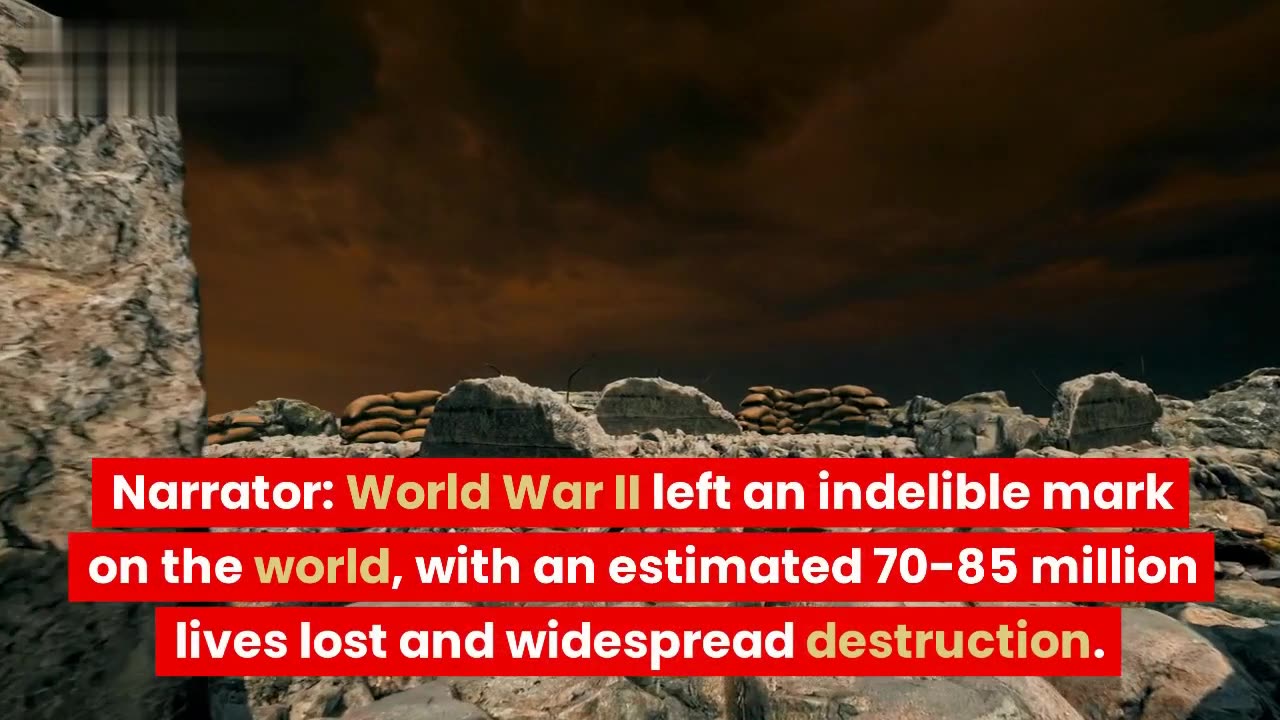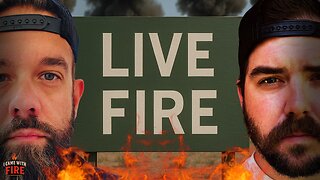Premium Only Content

World War II was a global conflict that took place from 1939 to 1945
World War II was a global conflict that took place from 1939 to 1945, involving the majority of the world's nations. Here is an overview of World War II:
Causes and Aggression:
Political instability and economic turmoil following World War I created fertile ground for the rise of totalitarian regimes in Germany, Italy, and Japan.
Adolf Hitler's Nazi Germany pursued aggressive expansionist policies, seeking to establish a racially pure empire. Italy, under Benito Mussolini, aimed to revive the Roman Empire, while Japan sought to expand its empire in the Pacific.
European Theater:
Germany's invasion of Poland in 1939 marked the beginning of the war in Europe. This triggered the declarations of war by the United Kingdom and France against Germany.
Germany swiftly conquered much of Europe using Blitzkrieg tactics, while the United Kingdom, led by Prime Minister Winston Churchill, resisted German air attacks during the Battle of Britain.
The war in Europe saw major battles such as the Battle of Stalingrad, the Battle of Normandy (D-Day), and the Battle of Berlin.
Pacific Theater:
In the Pacific, Japan launched a surprise attack on the United States' naval base at Pearl Harbor in 1941, leading to the U.S. entry into the war.
The Pacific theater witnessed intense naval battles, island-hopping campaigns, and key battles like the Battle of Midway and the Battle of Okinawa.
The use of atomic bombs on Hiroshima and Nagasaki by the United States ultimately led to Japan's surrender in 1945.
Axis Powers and Allies:
The Axis Powers, led by Germany, Italy, and Japan, formed a military alliance, while the Allies, composed of the United States, Soviet Union, United Kingdom, and other nations, formed a counterforce against them.
The Soviet Union, under Joseph Stalin, played a significant role in the war, especially on the Eastern Front, where they fought against German forces.
Holocaust and War Crimes:
During the war, Hitler's Nazi regime implemented the systematic genocide of six million Jews and millions of others in what is known as the Holocaust.
War crimes and atrocities were committed by various parties, including the massacre at Nanjing by Japanese forces and the systematic murder of civilians by German forces.
End of the War:
As the Allied forces advanced on both the European and Pacific fronts, Germany surrendered in May 1945, followed by Japan's surrender in August 1945 after the atomic bombings.
The war resulted in the loss of approximately 70-85 million lives and caused widespread destruction worldwide.
The aftermath of World War II led to significant geopolitical changes, the establishment of the United Nations, the beginning of the Cold War, and a renewed focus on human rights and international cooperation.
-
 DVR
DVR
SynthTrax & DJ Cheezus Livestreams
1 day agoFriday Night Synthwave 80s 90s Electronica and more DJ MIX Livestream Michael Jackson / AI Art Compilation Edition
24.6K -
 1:03:57
1:03:57
Sarah Westall
4 hours agoMara Lago Accord Joins the Fed, Fed Waves the White Flag & more w/ Andy Schectman
11.7K -
 LIVE
LIVE
I_Came_With_Fire_Podcast
1 day ago*BREAKING* Special Guest Katarina Szulc
446 watching -

megimu32
4 hours agoOFF THE SUBJECT: FAFO Friday! Bodycams & Mario Kart Mayhem!
10.9K4 -
 55:36
55:36
Flyover Conservatives
23 hours ago4 Strategies to Create Opportunity from Nothing - Clay Clark | FOC Show
19.1K -
 1:49
1:49
Gaming on Rumble
10 hours agoWhat is the Rumble Creator Program!?!? (Active Premium Creators) | Lvl UP
22.5K2 -
 5:56:26
5:56:26
Midnight In The Mountains
7 hours agoGaming w/ PER·SE·VER·ANCE | Midnights Play Fortnite | Split Screen Action!
14.3K2 -
 3:56:17
3:56:17
Nerdrotic
8 hours ago $0.63 earnedLet's TACO-bout Take Us North, Hollywood COPE! Cracker Barrel CRACKED! | Friday Night Tights 369
91.4K5 -
 1:16:30
1:16:30
RiftTV
7 hours agoHow Blue Light is Turning You Gay | The Rift | Guest: Jack Kruse
29.7K10 -
 LIVE
LIVE
Eternal_Spartan
14 hours ago🟢 Eternal Spartan Plays Final Fantasy 7 Remake Intergrade | USMC Vet | Join the Best Chat on Rumble
100 watching